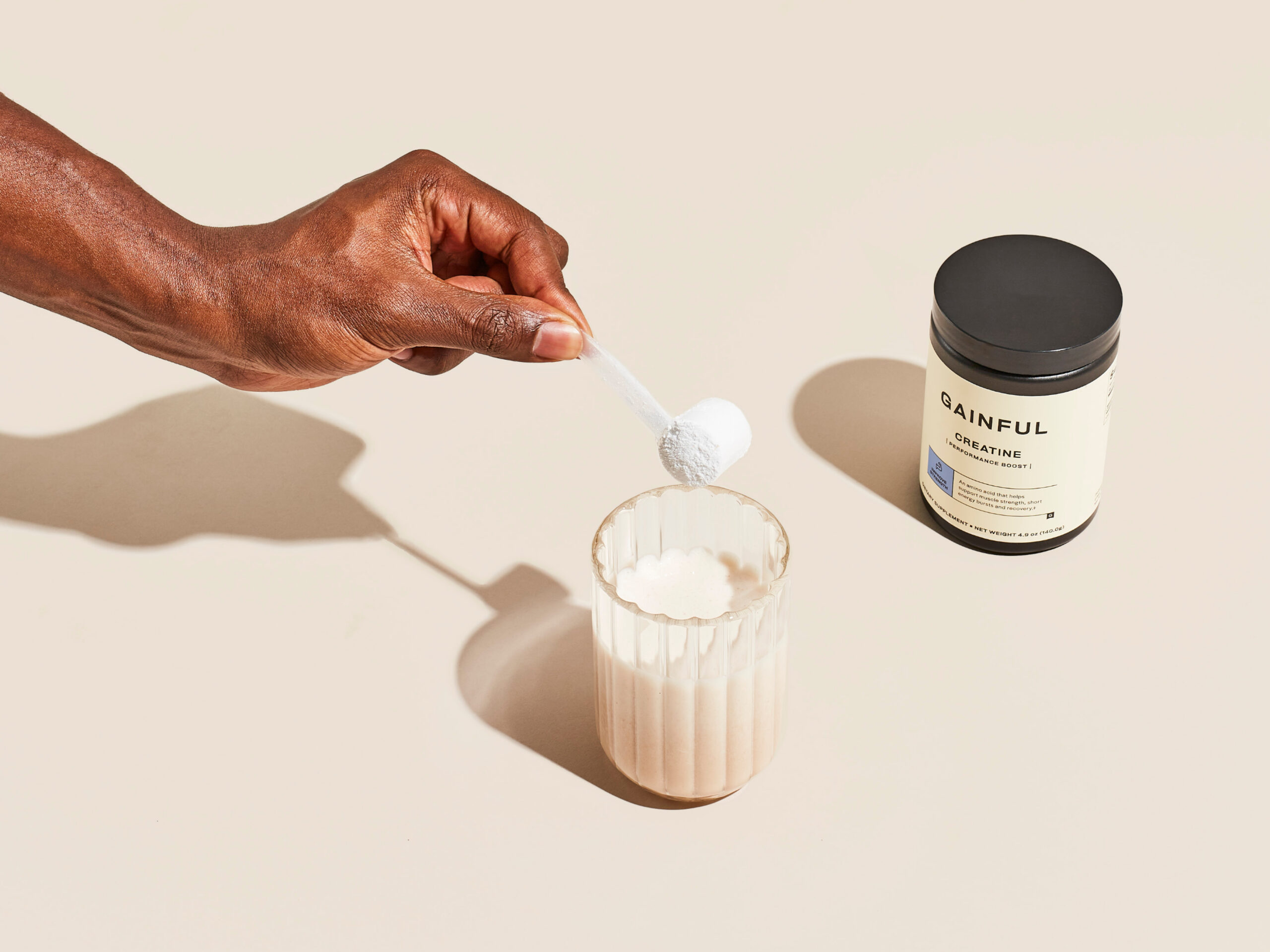Title: When Is the Best Time to Take Creatine? Debunking Myths and Optimizing Benefits

Best time to take creatine – Creatine is one of the most widely researched and effective supplements for enhancing athletic performance, muscle growth, and overall exercise capacity. However, a common question among fitness enthusiasts is, “When is the best time to take creatine?” This blog aims to delve into this topic, examining scientific evidence and debunking myths to help you make informed decisions about optimizing your creatine intake.
Understanding Creatine:
Before we discuss the timing of creatine supplementation, it’s essential to understand what creatine is and how it works. Creatine is a naturally occurring compound in small amounts in foods like meat and fish. It is crucial in supplying energy to cells, particularly during short bursts of intense physical activity.
Supplementing with creatine monohydrate has been shown to increase muscle phosphocreatine levels, enhancing the capacity for short-term, high-intensity efforts like weight lifting and sprinting.
Myth Debunking:
“Loading Phase” One of the most common misconceptions about creatine supplementation is the notion of a “loading phase.” This involves taking higher doses of creatine (around 20 grams per day) for about a week, followed by a maintenance dose (around 3-5 grams daily).
While loading can saturate muscle creatine stores more rapidly, recent research suggests that a loading phase isn’t necessary. A daily dose of 3-5 grams can effectively increase creatine stores over time, and there’s no added benefit to the initial loading phase.
Best Time To Take Creatine – The Timing Dilemma: Pre- vs. Post-Workout:
- Pre-Workout Creatine: Some athletes prefer taking creatine before their workouts, theorizing that it might enhance immediate performance. While it’s true that elevated muscle creatine levels can improve short-term energy availability, the timing doesn’t seem to be a crucial factor. Pre-workout supplementation could be beneficial if it helps you consistently take your creatine dose.
- Post-Workout Creatine: On the other hand, taking creatine after your workout could aid in the replenishment of creatine stores depleted during exercise. The post-workout window is a period when muscle cells are more receptive to nutrient uptake, potentially enhancing the absorption of creatine. However, research has shown that the timing of creatine intake relative to workouts doesn’t significantly impact its effectiveness.
Consistency Trumps Timing:
Experts agree that consistency in creatine supplementation matters more than precise timing. As long as you consistently take the recommended daily dose of 3-5 grams, you’ll likely experience the benefits of increased muscle creatine stores, regardless of whether you take it pre- or post-workout.
Non-Training Days: There’s no need to alter your creatine supplementation routine on rest days. Simply continue taking your regular dose, as maintaining consistent creatine levels in your muscles is important for maximizing its performance-enhancing effects.
Combining Creatine with Carbohydrates and Protein: While the timing of creatine intake might not be crucial, combining it with carbohydrates and protein can enhance its absorption. Insulin, which is released in response to carbohydrate and protein intake, can aid in the uptake of creatine by muscle cells. Therefore, having a small meal or shake that includes carbohydrates and protein alongside your creatine dose could be beneficial.
What Does Creatine Do?
Creatine is a naturally occurring compound found in small amounts in certain foods, particularly meat and fish. It is also synthesized by the body, mainly in the kidneys, liver, and pancreas, from amino acids such as arginine, glycine, and methionine. Creatine plays a crucial role in the body’s energy system, particularly during short bursts of high-intensity physical activities. Here’s what creatine does:
1. Enhances Energy Production:
Creatine is primarily stored in skeletal muscle as phosphocreatine (PCr). When your muscles need energy for short bursts of intense activity, like weight lifting or sprinting, PCr donates its phosphate group to adenosine diphosphate (ADP), creating adenosine triphosphate (ATP).
ATP is the immediate energy currency of cells and is essential for muscle contractions. This quick conversion helps supply the energy needed for brief, powerful movements.
2. Improves Exercise Performance:
Supplementing with creatine can increase the amount of creatine stored in your muscles, which enhances your muscles’ capacity to regenerate ATP during short bouts of intense exercise.
This improved ATP regeneration translates to increased energy availability, improving performance in activities requiring explosive power and strength, like weightlifting, sprinting, and jumping.
3. Supports Muscle Growth and Recovery:
Creatine’s role in energy production extends to facilitating protein synthesis, the process through which your body builds and repairs muscle tissues. By providing more immediate energy, creatine supplementation can help you train harder and potentially stimulate muscle growth. Additionally, creatine might reduce muscle damage and inflammation post-exercise, contributing to quicker recovery times.
4. Increases Muscle Volume:
Creatine can lead to short-term water retention within muscle cells, increasing in muscle cell volume. This effect is not the same as building new muscle fibres but can contribute to a fuller and more pumped appearance, particularly during and after workouts.
5. Potential Cognitive Benefits:
Emerging research suggests that creatine might have cognitive benefits as well. It’s believed that creatine could support brain function by aiding in the production of ATP, which is essential for neuronal processes. Some studies suggest that creatine supplementation might improve short-term memory and cognitive performance, especially in tasks requiring quick thinking.
6. Potential Health Benefits:
Beyond its role in exercise and cognitive function, there’s ongoing research into the potential health benefits of creatine. Some studies suggest that creatine might have antioxidant properties, support neurological health, and be beneficial for certain medical conditions. However, more research is needed to understand these potential effects fully.
7. Supporting Clinical Uses:
Creatine supplementation has shown promise in certain clinical applications. For instance, it has been used to manage creatine deficiency syndromes, which are rare genetic disorders affecting creatine synthesis or transport. Additionally, some research indicates that creatine might have benefits for individuals with neurodegenerative diseases or muscle-related disorders.
Conclusion:
The best time to take creatine is ultimately a matter of personal preference and convenience. The myth of a loading phase has been debunked, and while the timing of creatine intake might have minor effects, consistency in supplementation and proper dosage are paramount.
Whether you take it pre-or post-workout or even on non-training days, the key is to ensure you consistently provide your muscles with enough creatine to reap its performance and muscle-building benefits. Consulting with a healthcare or fitness professional before introducing any new supplement into your routine is recommended.
FAQs
Is a loading phase necessary when taking creatine?
No, a loading phase is not necessary. While it was once believed that a higher initial dose (loading phase) followed by a maintenance dose was beneficial, recent research suggests that a consistent daily dose of 3-5 grams is sufficient to increase creatine stores in muscles over time.
Should I take creatine before or after my workout?
The timing of creatine intake, whether before or after a workout, is not a critical factor in its effectiveness. Both pre- and post-workout supplementation can be effective. Choose a time that aligns with your routine and helps you consistently take your creatine dose.
Can I take creatine on rest days?
Yes, you should continue taking your regular creatine dose on rest days. Consistency in supplementation is important for maintaining increased muscle creatine levels, contributing to its performance benefits.
Can combining creatine with carbohydrates and protein enhance its effects?
Combining creatine with carbohydrates and protein can potentially enhance its absorption. Carbohydrates and proteins stimulate insulin release, which can aid in the uptake of creatine by muscle cells. Consider having a small meal or shake containing carbohydrates and protein alongside your creatine dose.
Are there any side effects of creatine supplementation?
Creatine is generally considered safe for most people when taken at recommended doses. However, some individuals may experience gastrointestinal discomfort or minor water retention. It’s essential to stay hydrated when taking creatine to minimize the risk of water retention.
Can creatine help with weight loss?
While creatine is not a weight loss supplement, it can indirectly contribute to weight loss by improving exercise performance. Increased performance can lead to more intense workouts, which in turn can contribute to calorie burning and fat loss.
Can I overdose on creatine?
Excessive creatine consumption is not recommended, as it can potentially lead to health issues. Stick to the recommended dosage of 3-5 grams per day.
Remember, before making any changes to your supplement regimen, it’s best to consult with a healthcare or fitness professional, especially if you have underlying health conditions or concerns.




